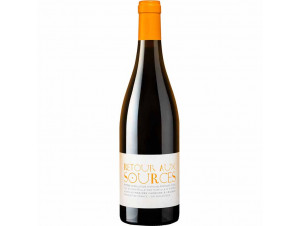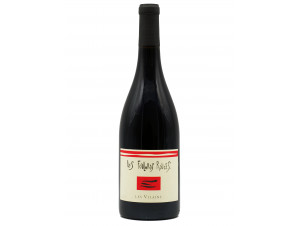You have no items in your shopping cart.
Wine Fitou
-
Top Selling-25%
-
Top Selling-26%
-
Top Selling-25%
- -17%
- -17%
The Fitou AOC, between sea and mountain
The name Fitou comes from the Latin "fictor", which means potter, as the clay industry was widespread in the region. As for the vines, they were first planted by the Greeks and then the Romans over 2000 years ago. However, the land was divided between the cultivation of cereals, olive trees and vines. It was not until the 1850s that viticulture became exclusive. At the beginning of the 20th century the Société Coopérative de Vignerons de Fitou was created.
The appellation covers 2600 hectares divided between two areas: one near the Etang de Leucate and the Mediterranean and the other in the Massif des Corbières. The first recognised appellation of the Languedoc, this one is dominated by four grape varieties: carignan, grenache, mourvèdre and syrah.
The region benefits from a Mediterranean climate, the low rainfall being compensated for by marine humidity. The soils in the appellation are mainly chalky, marly and schist soils, although there are 22 different soil types in the AOC.
How to appreciate AOC Fitou
Fitou is characterised by a ruby red coat, which will take on orange and amber hues with age, which is explained by the barrel ageing of the wines.
The nose develops aromas of red fruits, raspberry and blackberry, and spices such as pepper. As it ages, it will show woody and vanilla notes brought by the carignan, as well as scents of prune, toast or even toasted almond.
The Fitou's palate is relatively closed in their youth, with time it will become powerful and full, bringing warm aromas of ripe fruit and toasted dried fruit. The tannins are quite present and the Grenache Noir brings roundness and fatness to the palate.
Wines bearing the Fitou appellation will create beautiful marriages with lamb or pork dishes. They will also be harmonious with aubergines, not forgetting cassoulet, a regional speciality of the Languedoc.
Coteaux-du-Languedoc Cabrières
Coteaux-du-Languedoc Grès-de-Montpellier
Coteaux-du-Languedoc La Méjanelle
Coteaux-du-Languedoc Montpeyroux
Coteaux-du-Languedoc Saint-Drézéry
Coteaux-du-Languedoc Terres de Sommières
Côtes-du-Roussillon Les Aspres
Côtes-du-Roussillon-Villages Caramany
Côtes-du-Roussillon-Villages Latour-de-France
Côtes-du-Roussillon-Villages Lesquerde
Vin de Pays de la Cité de Carcassonne
Vin de Pays de la Côte Vermeille
Vin de Pays de la Haute Vallée de l'Aude
Vin de Pays de la Vallée du Paradis
Vin de Pays de la Vicomté d'Aumelas
Vin de Pays de Saint-Guilhem le Désert
Vin de Pays des Collines de la Moure
Vin de Pays des Coteaux de Peyriac
Vin de Pays des Coteaux du Pont du Gard
Vin de Pays des Coteaux du Salagou
Vin de Pays des Côtes Catalanes
Vin de Pays des Côtes de Prouilhe
Vin de Pays des Côtes de Thongue
Vin de Pays des Côtes du Brian
Vin de Pays des Pyrénées-Orientales


































 TWIL - Achat de Vin
TWIL - Achat de Vin


